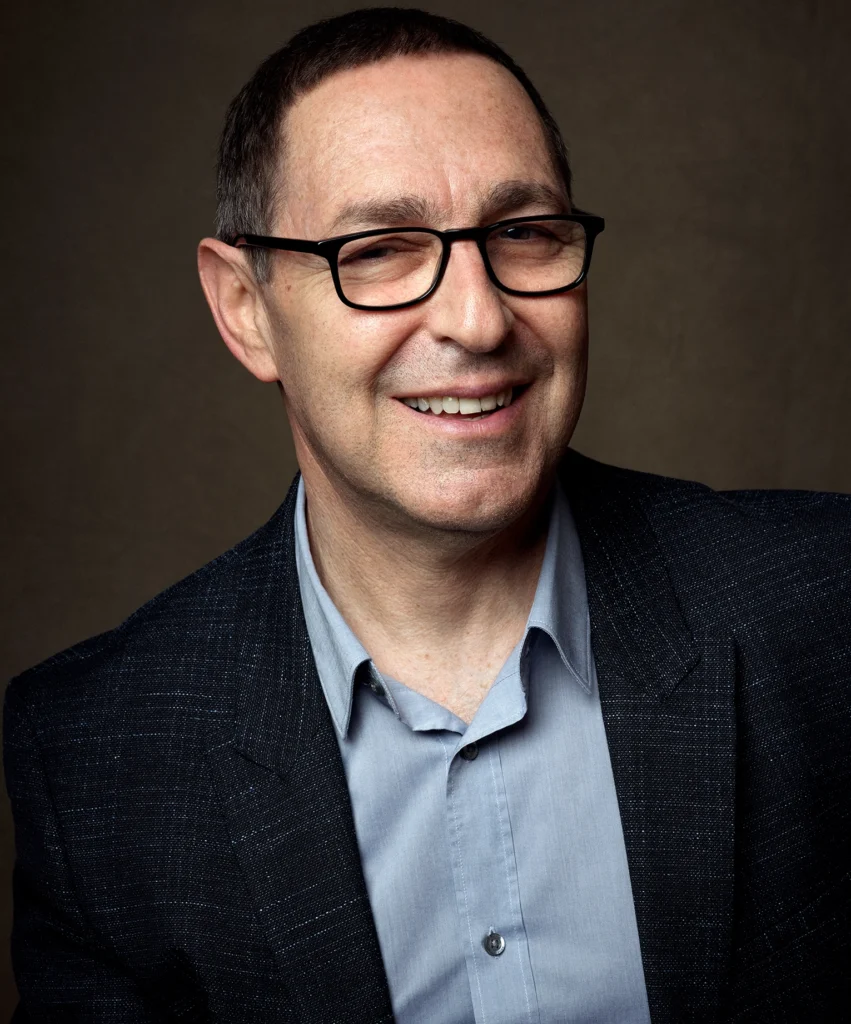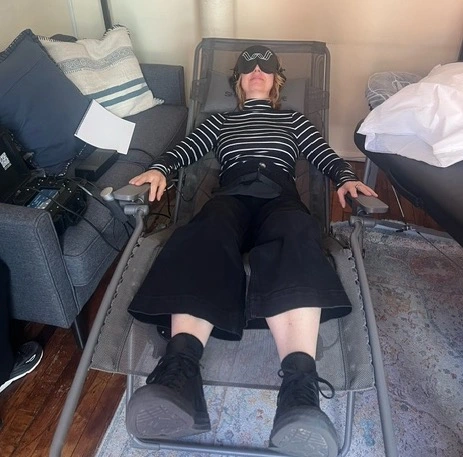Dr. Frank Lipman, a Functional Medicine Pioneer, Is All-In on Longevity

An esteemed physician and New York Times Bestselling author on aging, Dr. Lipman has shifted the concentration of his decades-old practice in New York City to focus specifically on longevity medicine
In the health and wellness space, trends and buzzwords come and go with the seasons. Longevity, however, is here to stay.
Longevity – essentially the science of aging gracefully, or slowing down the aging process altogether – has become all the rage on social media, but it’s not just podcasters and influencers who are behind the movement, although they’ve been helpful in bringing it into the mainstream.
Entrepreneurs and financiers are jumping on the longevity bandwagon, opening up med spas, metabolic health clinics and wellness franchises across the U.S. that offer everything from GLP-1 weight loss drugs to cryotherapy.
Increasingly, medical professionals are embracing longevity as a field of interest, bringing much-needed scientific rigor and clinical expertise to the space.
Dr. Frank Lipman, a pioneer of the functional medicine movement and a New York Times Bestselling author on aging, is all-in on longevity. Dr. Lipman has effectively shifted the concentration of his decades-old practice at Eleven Eleven Wellness Center in New York City to focus specifically on longevity medicine, which he describes as a “subspecialty” of functional medicine.
“I’m obsessed with the longevity space, I see it as an extension of functional medicine,” Lipman tells Athletech News. “Longevity goes a bit deeper into specific areas, delving into the hallmarks of aging like mitochondrial function, cellular senescence and autophagy.”

Lipman credits wellness podcasters like Peter Attia, MD, and Andrew Huberman, PhD, along with Joe Rogan, for helping to bring longevity into the mainstream. He also thinks there’s been a collective societal awakening to the importance of long-term health driven by the COVID-19 pandemic.
“People come into my office now knowing much more than they did even a few years ago,” Lipman says. “One thing that’s probably changed the most is people, mainly men – women have always been more aware of their health – in their 40s and 50s coming in to optimize their health, which wasn’t happening before.”
A New Type of Longevity Practice
Amid the heightened demand for long-term health solutions, Dr. Lipman has launched the Eleven Eleven Wellness Longevity Program. The comprehensive, membership-based program is designed to help patients optimize their health, slow down the aging process and increase their healthspan.
For an annual fee, members receive genetic testing, biological age testing and an extensive set of blood biomarker testing, including a lipid and heart panel, hormones, nutrients, inflammatory markers, cellular senescence markers, metabolic markers, plasmalogens, phospholipids and intracellular NAD levels. These are all analyzed by Lipman and his team of practitioners, who then provide personalized supplement, nutrition, exercise, hormone and peptide recommendations.
Perhaps most importantly, members get unlimited access to Lipman and his team for support, recommendations and check-ups.
“I’m a big believer that medicine is about relationships,” Lipman says of his practice in general and of the Longevity Program’s unlimited access. “The Dalai Lama said the three most important aspects of healing are the belief of the patient, the belief of the practitioner, and the relationship between the two. I’m all about meeting people where they’re at, making people feel good about what they’re doing, and inspiring and motivating them to make changes.”

While Lipman believes that proper sleep, diet, exercise and stress management are the foundational keys to optimizing health, patients in his Longevity Program also get access to cutting-edge wellness technology.
At Lipman’s practice in Manhattan, members get a body composition and body water analysis via an InBody machine, measuring their muscle mass, fat mass, visceral fat, and body fat percentage, along with a whole-body phase angle, which measures cell permeability, a metric that’s been shown to indicate overall health. These measurements can lead to important health insights that often go overlooked in traditional medicine.
The Longevity Program also employs Shiftwave, a breakthrough wellness device that uses intelligent patterns of pulsed-pressure waves to fully reset the nervous system, the One Mind program, which uses brain mapping with AI-driven technology to deliver hyper-personalized brain optimization, and a Photodynamic Light Therapy Machine, which enhances cellular function, reduces inflammation and supports sleep.

The Future of Longevity: Brain Health & GLP-1s
As the longevity movement continues to grow, Lipman has a couple of bold predictions for how the space – and potentially his practice – will evolve over the coming years.
For one, Lipman believes there will be an increased focus on brain health as brain-mapping machines become more advanced and easily accessible.
“I think brain health is going to become something we can measure fairly easily and then make changes accordingly,” he says, noting this will have a profound impact on helping to defend against age-related cognitive decline.

Big changes could be coming on the pharmaceutical side as well.
GLP-1 medications are currently making headlines for their weight-loss powers, but Lipman sees them having another use in the near future: as powerful anti-aging drugs. According to Lipman, “micro-dosing” GLP-1s, or taking the drugs in low, carefully prescribed quantities, can have powerful anti-aging effects.
Lipman shares that he himself, now almost 70 (though he looks some 20 years younger), has been experimenting with low doses of GLP-1s.
“People think of them as (just) weight-loss drugs, but they help your glucose and insulin, they help your lipid numbers, they help your immune system, they can prevent neurological issues and they decrease inflammation,” he notes.
Lipman stresses, however, that GLP-1s, even when taken in small doses, must be accompanied by lifestyle changes.
“If you don’t eat a healthy, nutrient-dense diet with lots of protein and do strength training, I would never recommend them,” he cautions. “You have to incorporate the whole package.”
Assuming those boxes are checked off, Lipman is extremely bullish on GLP-1s.
“If I had to make one prediction it would be that those are going to become the hot anti-aging drugs,” he says.
The Social Side of Longevity
Staying on top of your bloodwork, measuring your body composition and leading a healthy lifestyle are undoubtedly important, but they’re not the only things that matter when it comes to longevity.
Lipman believes the “intangibles,” things like building meaningful relationships, finding community, and doing work that you’re passionate about, are just as if not more important than the physical aspects.
“Passion, meaning, gratitude, kindness and relationships are probably more important for your health than all the other stuff we do,” he says.
Lipman believes so strongly in the power of community to drive health outcomes that he signed on as chief medical officer of The Well, a social wellness club in New York City that offers spa services, health coaching and mindful movement classes.
“There are so many studies showing how detrimental loneliness is to your health; it’s worse than alcohol, smoking and obesity,” Lipman says. “So the idea that you can create spaces that are lovely to go to, that have healthy food, and where you can create community, I think is very powerful. Bringing community back to New York City, and to America in general, is very important.”



